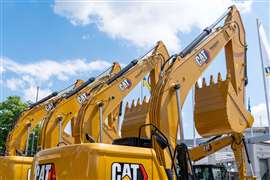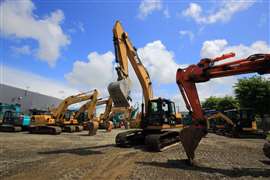EC proposals on standards
02 June 2011
The European Commission (EC) is taking steps which it said would provide more standards in Europe, and faster, but this has provoked a warning that speed should not take preference over quality.
On 1 June, the EC proposed a series of measures referring to standards in Europe. It said that while nobody was obliged to use or apply standards - sets of voluntary technical and quality criteria for products, services and production processes - they helped businesses in working together, ultimately saving money for the consumer.
The most important steps being proposed to strengthen the system of standard-setting in Europe, the Commission said, included the enhancement of its co-operation with the leading standardisation organisations in Europe. These include CEN (European Committee for Standardisation).
The drafting of European standards with the help of organisations representing those most affected, or most concerned - consumers, small businesses (SMEs), environmental and social organisations - was also said to be important.
Another proposal is the increase in the number of European standards for services if there is a demand from business.
Some of these actions will be implemented immediately while others need the approval of the European Parliament and the Council.
FIEC (the European Construction Industry Federation) said it welcomed the broad goal of the increased innovation and global competitiveness of European industry. However, it warned that standardisation should be used as a tool of broader policy aims.
It added that in broadening the scope of standardisation, speed to complete standards should not take precedence over their quality or a full consultation process involving all the parties concerned.
It pointed out that the construction industry represented more than 10% of EU GDP (gross domestic product), and buildings and civil engineering works were the second largest sector in terms of the volume of documents published by CEN.
FIEC, said that as CEN's first associate member and the only representative of all sizes of construction enterprise, it believed the standardisation process should be to the benefit of all industry actors concerned by a standard's development.
It added that, unlike other sectors, given the long-term assets of construction works, innovation in construction products needed to be assessed for its durability and compatibility with national codes before standardisation, taking into consideration the needs of all the trades involved, can take place.
FIEC said that standards were developed to create an industry benchmark for quality products and services, but that they were not the most appropriate tool in all cases. It therefore called for proposed standards to be thoroughly screened for their market relevance and to avoid needless duplication.
It said that standards should not introduce obligations for parties who were not involved in their development. It added that standards should enable fair, unbiased competition within the industry at all levels of the supply chain.
FIEC said it believed that the national delegation principle through mirror committees was the most effective way of ensuring the broadest possible representation in the standardisation process. The participation, at national level, of all stakeholders directly concerned by the development of a standard should be promoted as a priority - and not just those with a direct economic interest, it added.
In seeking to promote the participation of SMEs in the standardisation process at European level, the European Commission and European standardisation bodies should ensure that all organisations representing SMEs are treated equally, FIEC said. Public funding, it said, should allow all interested parties, especially SMEs, to collaborate in standardisation activities.
In the adoption process for standards, FIEC considered that standardisation bodies should establish a mechanism to ensure that all relevant stakeholders had been consulted before allowing standards to move forward for adoption.






